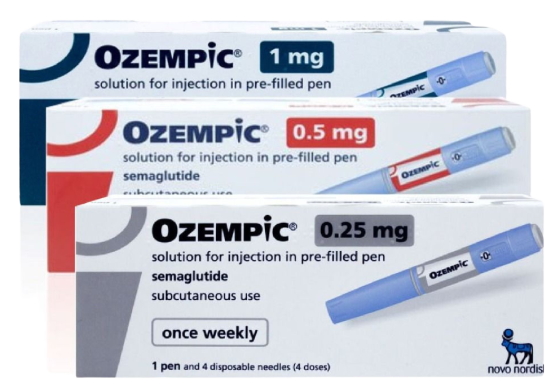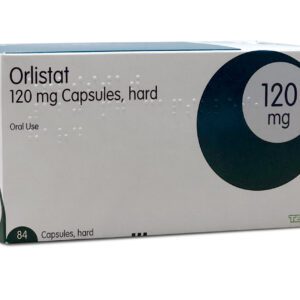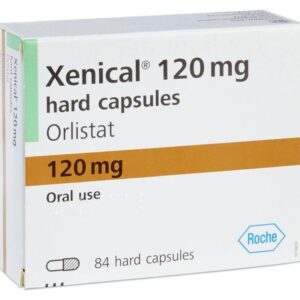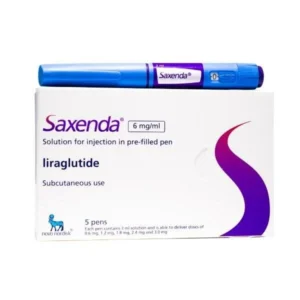Ozempic (Semaglutide)
Ozempic (Semaglutide)
$280.00 – $410.00
- Pricing Is Only Shown For Information Purposes
- Currently Licensed For Type 2 Diabetes
- Not Licensed For Weight Loss, Its Use Is ‘Off-Label’
- Each Pen Has 4 Doses
- It’s The Prescriber’s Decision To Issue A Prescription
Free Shipping Above $300 Orders
100% Guaranteed Satisfaction
Ozempic (Semaglutide)
Ozempic (also known as semaglutide) is an injectable non-insulin medication used to treat type 2 diabetes. It is recommended that Ozempic be used as an adjunct to proper diet and exercise for improving blood sugar control in people with type 2 diabetes.
Although Ozempic is not a weight-loss medication, many people who take Ozempic lose weight as shown in a recent study. In one large study, people who took the 1mg dose of Ozempic lost an average of 12 lbs. during the one-year study period (average starting weight was 198 lbs.). Further, a series of large clinical studies showed the weight loss effects of Ozempic to be superior to a number of other diabetes medications.
People who have been prescribed Ozempic have the convenient option to buy Ozempic online as a way to reduce the Ozempic cost.
Is Ozempic Suitable for me?
The licensed indication for Ozempic is in the management of Type 2 Diabetes – either as monotherapy or in combination with other treatments.
Weight loss as a secondary outcome has been and continues to be extensively studied.
Please be mindful of the below warnings and be sure to familiarise yourself with the patient information leaflet included with your medication.
Patients who have a BMI of at least 28 with medical conditions or above 30 without, or have high blood pressure or high blood glucose can take this medication – our pharmacist will discuss this further.
This medication is NOT suitable for the following patient groups:
- Patients with a history of thyroid or pancreatic cancer
- Patients with a BMI below 28
- Patients who are pregnant, breastfeeding, and under the age of 18
- Patients taking certain medications – our pharmacist will take a thorough medical history.
Risk of Thyroid C-Cell Tumors: Patients should be referred to an endocrinologist for further evaluation if serum calcitonin is measured and found to be elevated or thyroid nodules are noted on physical examination or neck imaging.
Pancreatitis: Acute and chronic pancreatitis have been reported in clinical studies. You should be mindful of the signs and symptoms of pancreatitis (persistent severe abdominal pain, sometimes radiating to the back with or without vomiting). If pancreatitis is suspected, discontinue Ozempic® promptly, and if pancreatitis is confirmed, do not restart.
Diabetic Retinopathy Complications: In a 2-year trial involving patients with type 2 diabetes and high cardiovascular risk, more events of diabetic retinopathy complications occurred in patients treated with Ozempic® (3.0%) compared with placebo (1.8%). The absolute risk increase for diabetic retinopathy complications was larger among patients with a history of diabetic retinopathy at baseline than among patients without a known history of diabetic retinopathy.
Rapid improvement in glucose control has been associated with a temporary worsening of diabetic retinopathy. The effect of long-term glycaemic control with semaglutide on diabetic retinopathy complications has not been studied. Patients with a history of diabetic retinopathy should be monitored for the progression of diabetic retinopathy.
Never Share an Ozempic® Pen Between Patients: Ozempic® pens must never be shared between patients, even if the needle is changed. Pen-sharing poses a risk for transmission of blood-borne pathogens.
Hypoglycaemia: The risk of hypoglycemia is increased when Ozempic® is used in combination with insulin secretagogues (eg, sulphonylureas) or insulin.
Acute Kidney Injury: There have been postmarketing reports of acute kidney injury and worsening of chronic renal failure, which may sometimes require hemodialysis, in patients treated with GLP-1 receptor agonists. Some of these events have been reported in patients without known underlying renal disease. A majority of the reported events occurred in patients who had experienced nausea, vomiting, diarrhea, or dehydration. Monitor renal function when initiating or escalating doses of Ozempic® in patients reporting severe adverse gastrointestinal reactions. – You may be invited to undertake a blood test, our pharmacist will let you know what the procedure will be.
Hypersensitivity: Serious hypersensitivity reactions (eg, anaphylaxis, angioedema) have been reported with GLP-1 receptor agonists. If hypersensitivity reactions occur, discontinue use of Ozempic®; treat promptly per standard of care, and monitor until signs and symptoms resolve. Use caution in a patient with a history of angioedema or anaphylaxis with another GLP-1 receptor agonist.
Fetal Abnormalities – There is a risk of fetal abnormalities and other pregnancy-related conditions when taken during pregnancy – for this reason, Ozempic should NOT be taken during pregnancy unless, under strict supervision, it must also be discontinued 2 months before conception due to the long half-life.
Do I Need an HbA1C test Before Ordering Ozempic?
HbA1C is a measure of how well your blood sugar has been controlled over the past two to three months; due to Ozempic being licensed for Diabetes, it is important that you keep your blood sugar within the normal range.
Our prescribers will usually request proof of HbA1C result before they can issue your 6th pen; you can get this test done privately or order this from our partner lab here.
Buy Ozempic UK | How do I use Ozempic?
Administer Ozempic® once weekly on the same day each week, at any time of the day, with or without meals
The day of weekly administration can be changed if necessary as long as the time between 2 doses is at least 2 days (>48 hours)
If a dose is missed, administer Ozempic® as soon as possible within 5 days after the missed dose. If more than 5 days have passed, skip the missed dose and administer the next dose on the regularly scheduled day. In each case, you can then resume your regular once-weekly dosing schedule.
Inject into the abdominal fat, thigh, or upper arm – our pharmacist will go through this in detail with you. If you need help injecting this please speak to your doctor about this, you can also seek private advice from a registered nurse.
You may need to use ozempic for 2 months before you see some weight loss, as your body needs to get used to this. It is also recommended that you eat healthy diets while you are taking semaglutide, this will aid the weight loss process.
What are the Common side effects of Ozempic?
The most common side effects of Ozempic® may include nausea, diarrhea, vomiting, stomach (abdominal) pain, and constipation. The majority of reports of nausea, vomiting, and/or diarrhea occurred during dose increases.
Semaglutide for Weight Loss
NICE recommends the use of semaglutide for weight loss in adults with a BMI of more than 30 – however, patients should consider stopping semaglutide if less than 5% of the initial weight has been lost after 6 months of treatment.
Is Ozempic (semaglutide) Currently in Stock?
We usually have Ozempic in stock, and you can order this online through our consultation model.
Can I Order Ozempic Online?
Using our online medical service, you can order Ozempic without a prescription, however, you are required to complete a set of questions, these questions will allow our prescribers to determine if you are suitable for the medication. Online medical service does not replace your regular GP service and you should always consult with your doctor before taking any new medication, as they will have updated medical records for you.
Additional information
| Dosage | 0.25 mg, 0.5 mg, 1 mg, 2 mg |
|---|






Reviews
There are no reviews yet.